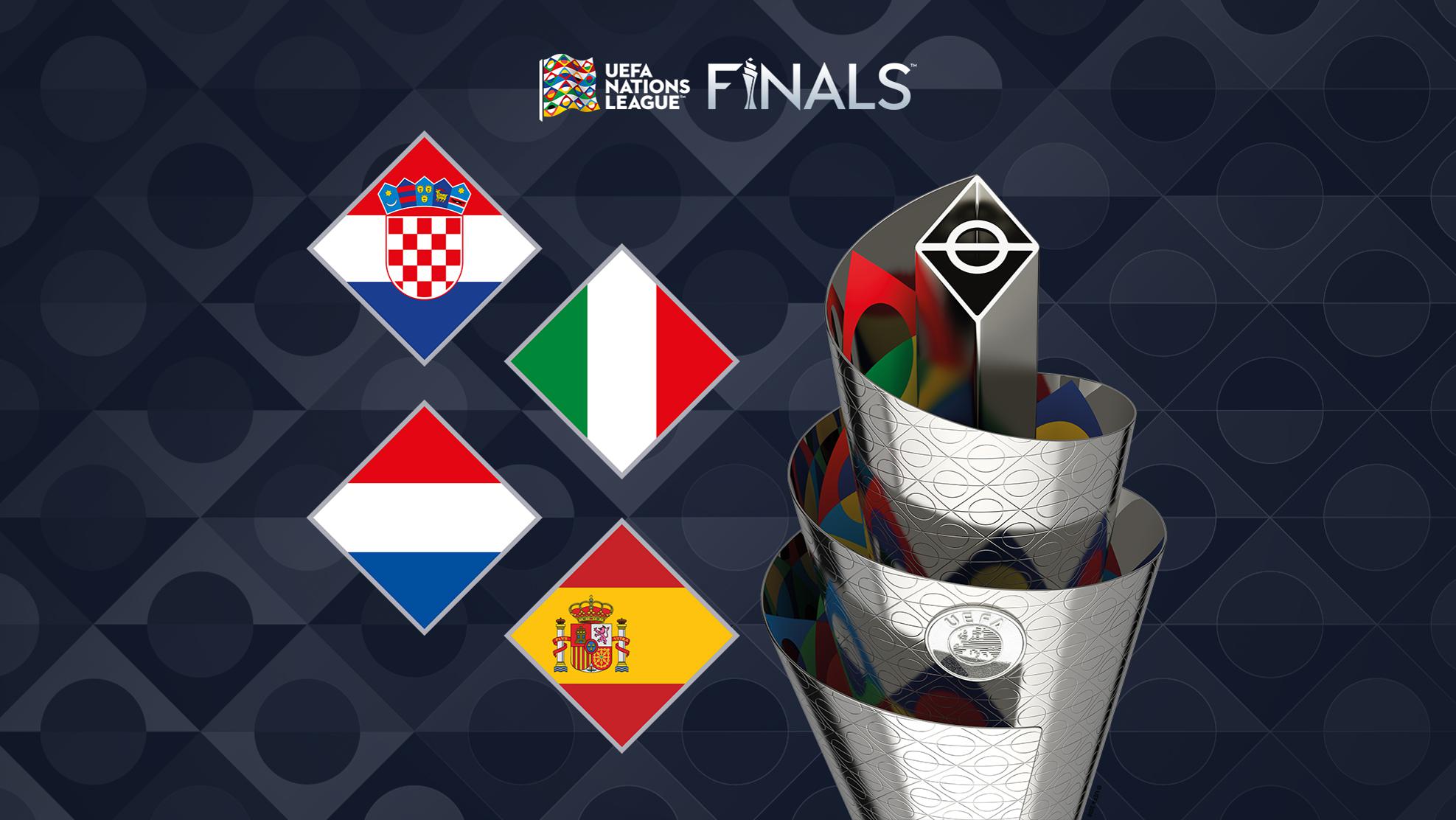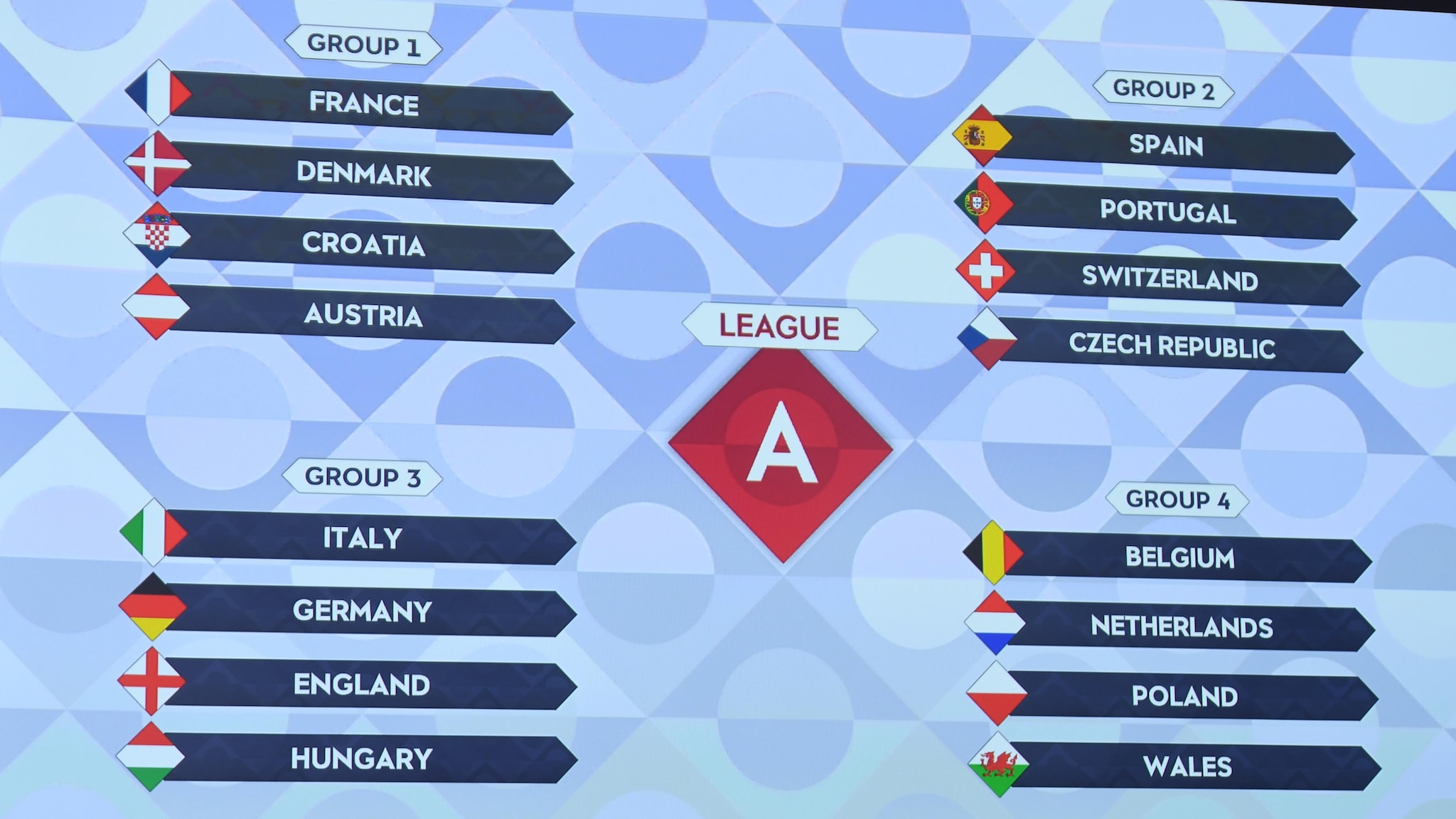History and Evolution of Nations League
/origin-imgresizer.eurosport.com/2023/06/18/3729557-75881068-2560-1440.jpg)
The Nations League, a precursor to the United Nations, emerged after the devastation of World War I. It was established in 1920 with the signing of the Treaty of Versailles, which aimed to prevent future conflicts and promote international cooperation.
The UEFA Nations League is a biennial international football competition contested by the senior men’s national teams of the 55 member associations of UEFA. The inaugural tournament was held in 2018–19, and the second edition is currently underway. One of the most exciting matches of the tournament so far has been the clash between Croatia and Italy, which ended in a 4-0 victory for Croatia.
You can read more about this match here. The Nations League has provided some thrilling football, and it will be interesting to see who emerges victorious in the end.
Origins and Development
The League’s roots lie in President Woodrow Wilson’s Fourteen Points, a plan for postwar peace. Wilson believed that collective security and disarmament were essential for maintaining global stability. The League’s mandate included preventing war, resolving international disputes, and improving global welfare.
The UEFA Nations League, a tournament designed to foster competitive international football, has witnessed some thrilling encounters. Among the participating nations, the Colombia national football team , known for their attacking prowess, has made a significant mark. Their performances in the Nations League have showcased their tactical flexibility and determination, making them a force to reckon with in the international football arena.
Key Goals and Objectives
The League’s primary objectives were:
- To prevent war through collective security and disarmament.
- To settle international disputes through peaceful means, such as arbitration and mediation.
- To promote international cooperation in areas such as health, labor, and economic development.
Timeline of Major Events
- 1920: League of Nations established under the Treaty of Versailles.
- 1921: First Assembly of the League of Nations held in Geneva, Switzerland.
- 1925: Locarno Treaties signed, guaranteeing the borders of Germany, France, and Belgium.
- 1931: Japan invades Manchuria, challenging the League’s authority.
- 1939: Outbreak of World War II, marking the League’s failure to prevent major conflict.
Structure and Organization of Nations League

The League of Nations, established after World War I, possessed a distinct organizational structure to facilitate its objectives of maintaining international peace and fostering cooperation among nations.
The League’s structure comprised three primary bodies: the Assembly, the Council, and the Secretariat, each fulfilling specific roles and responsibilities.
Assembly
The Assembly served as the League’s principal deliberative body, consisting of representatives from all member states. It convened annually to discuss a wide range of issues, including disarmament, international disputes, and economic cooperation.
Council
The Council, a smaller body than the Assembly, held primary responsibility for handling political and security matters. It comprised permanent members (initially the United States, Great Britain, France, Italy, and Japan) and non-permanent members elected by the Assembly.
Secretariat
The Secretariat, headed by a Secretary-General, acted as the League’s administrative and operational arm. It provided support to the Assembly and Council, prepared reports, and facilitated communication among member states.
Membership, Nations league
Initially, 42 nations joined the League as founding members. Membership was open to all independent states, and nations could join or leave the organization through a formal application and approval process.
Major Accomplishments and Failures of Nations League

The Nations League, established after World War I, had both successes and failures in its endeavors.
Accomplishments
The League played a significant role in promoting international cooperation, particularly in areas like health, labor, and refugee assistance. It also established the Permanent Court of International Justice, which provided a forum for resolving disputes peacefully.
Failures
Despite its accomplishments, the League faced several challenges. It failed to prevent World War II, which shattered its hopes of maintaining global peace. The League also struggled to address the rise of authoritarian regimes and the growing tensions between nations.
Legacy
Despite its failures, the League left a lasting legacy. It laid the groundwork for future international organizations, such as the United Nations, and helped to shape the principles of international cooperation and dispute resolution.
As the Nations League gears up for another round of thrilling matches, soccer enthusiasts eagerly anticipate the upcoming clash between the Phillies and the Tigers. With both teams showcasing impressive form, the phillies vs tigers prediction promises an exciting spectacle.
However, the Nations League remains the primary focus, where the battle for supremacy continues to unfold on the international stage.
The UEFA Nations League is a competition that brings together the top national teams in Europe. This year, the final four teams will compete in the Finals, with Italy and Croatia facing off in one of the semi-finals. Italia vs Croacia is a highly anticipated match, as both teams are evenly matched and have a chance to win the tournament.
The winner of this match will face either Spain or France in the final.
The UEFA Nations League is a biennial international football competition contested by the senior men’s national teams of the 55 member associations of UEFA. The tournament, which was first played in 2018, replaced international friendly matches and was designed to provide more competitive and meaningful games for European nations.
Giovanni Di Lorenzo , the Italian defender, has been a key player for his country in the Nations League, helping them to reach the semi-finals in 2021. The Nations League has quickly become a popular tournament, and it is expected to continue to grow in popularity in the years to come.